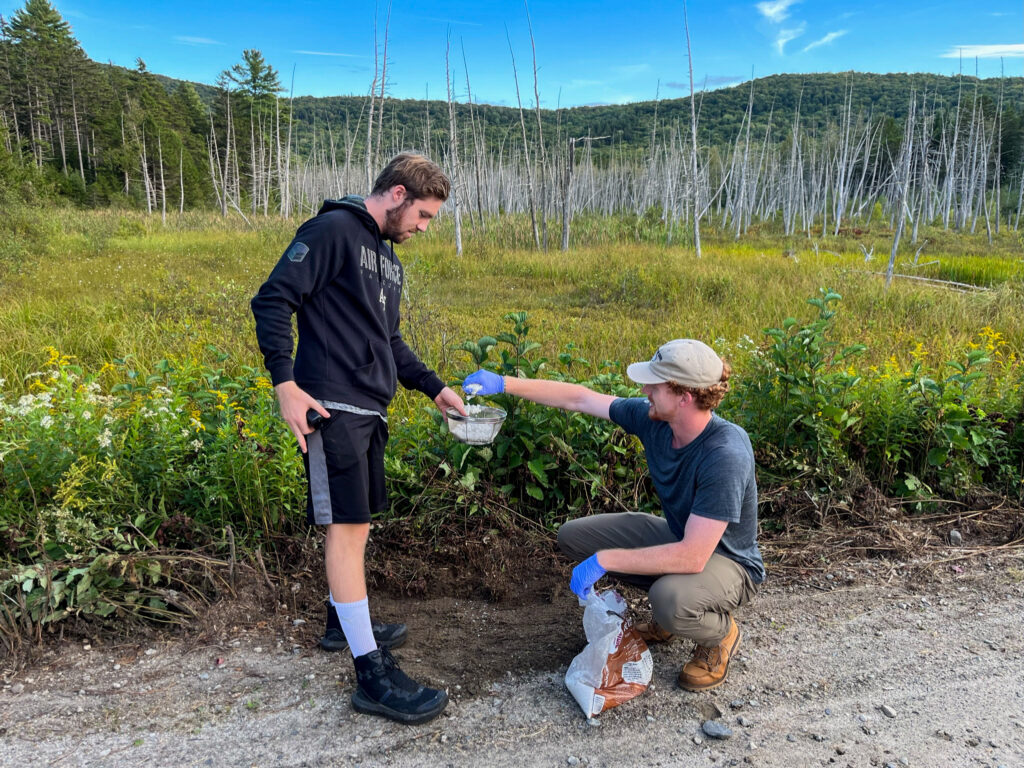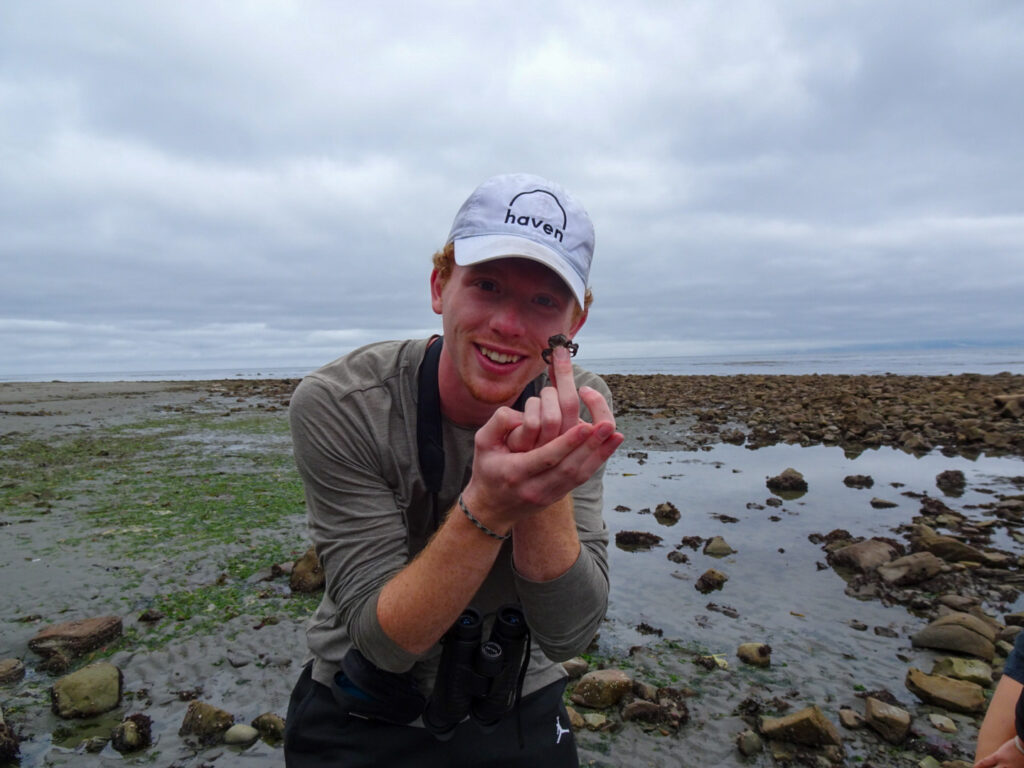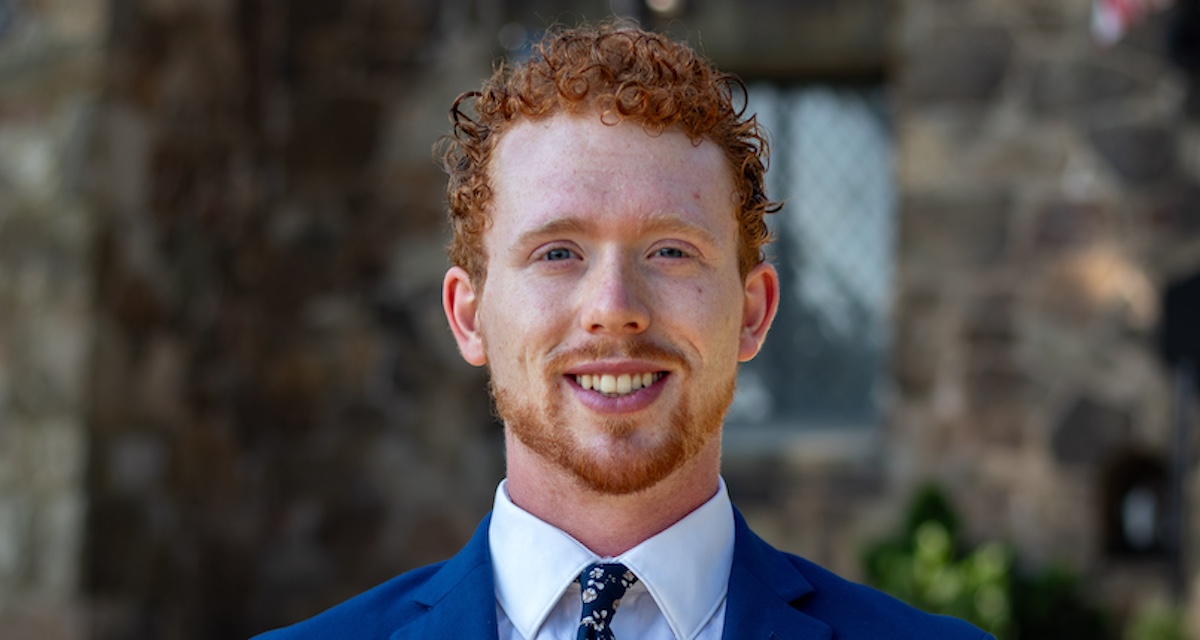Gordon Students to Represent Creation Care at COP28
A king, an oil tycoon and a Christian college student all walking into the same meeting might sound like the beginning of a joke. But from December 4 to December 15, 2023, it will be a reality when James Wheeler ’24 attends COP28 in Dubai, United Arab Emirates (UAE).
What is COP28?
Conference of the Parties (COP) is a yearly UN-hosted gathering of global leaders, policymakers, experts, students and more in response to climate change. This year will be the 28th time they’ve gathered, thus the name COP28. King Charles III of the United Kingdom will attend for the first time, and Sultan Ahmed Al Jaber, President of the United Arab Emirates and CEO of Emirates Oil, is hosting—another first for a COP.
Wheeler and Carolina Franca ’24 will attend the conference as UN Observers through the Christian Climate Observer’s Program (CCOP). They’ll shadow global leaders as they discuss environmental problems, propose solutions and agree on actionable goals their countries can undertake. “But the most important part about COP28 is what we’re learning and taking home to our communities, our churches, our school and our families so we can all make a difference,” Wheeler says.
A Critical Year for Climate Action
Previous COPs have produced many ambitious policies. The famous Paris Agreements happened at COP21 in 2015, in which 196 nations agreed to reduce global greenhouse gas emissions and pursue a 1.5°C global temperature rise limit by 2030 to put a cap on global warming. COP28 falls during the critical halfway point between the Paris Agreement’s target years. Recent data shows that at our current pace the world won’t meet those temperature and emission goals, so the primary aim of COP28 is to refocus priorities and establish bold policies to get back on track. “It’s such an incredible experience to be on the front lines of climate action at such a crucial point in history,” Wheeler says.

As a biology major Wheeler has a particular interest in the protection of ecosystems and biodiversity. “Sometimes that can get a little drowned out in climate change circles…I want to learn how our ecosystems are being affected and how we can take action for them.”
For Wheeler COP28 is the culmination of a strong academic career at Gordon. He worked with Samuel Mason, professor of chemistry, data science and environmental science, on a data science practicum, and he is currently researching salamander resistance to a deadly amphibian fungus at UMass Boston. He served as a wilderness guide and intern with La Vida. Last summer he attended the “Faith. Climate. Action” conference at Westmont College with Dorothy Boorse, professor of biology. He also studied at the AuSable Institute—a Christian summer program in environmental science.
“I love research and being out in the field and doing the hard work myself,” Wheeler said. “And I hope one day the research that I do can help make change possible by strengthening the policies gatherings like COP make.”
Representing Christianity and Creation Care at COP28
At COP28 participants will attend workshops on discussing climate financing options, network with peers from around the world and hear from panelists about the impact of climate change on tropical zones. The CCOP students will join attendees of many other faith backgrounds in the Green Tent, which specifically focuses on the intersection of religion and climate change.

Wheeler and his peers will attend events such as “Religious Philanthropy: A Catalyst for Climate Action” and “A Just Transition: The Role of Finance, Faith and Grassroots Movements.” They will also take a day trip with CCOP to join the Abu Dhabi Forum for Peace—a Christian-Muslim dialogue on climate action. Wheeler is especially excited to dialogue with others about alternative sources for energy transitions and the impact of climate change on indigenous populations.
“It’s so important to be a Christian in this space because there’s just such an opportunity to show Christ’s love in this area,” Wheeler says. “The stronger I’ve become as a Christian and in my relationship with God and in understanding the whole redemptive story of the Bible, the stronger my passion has become for caring about God’s earth and creation.”
 The Bell
The Bell